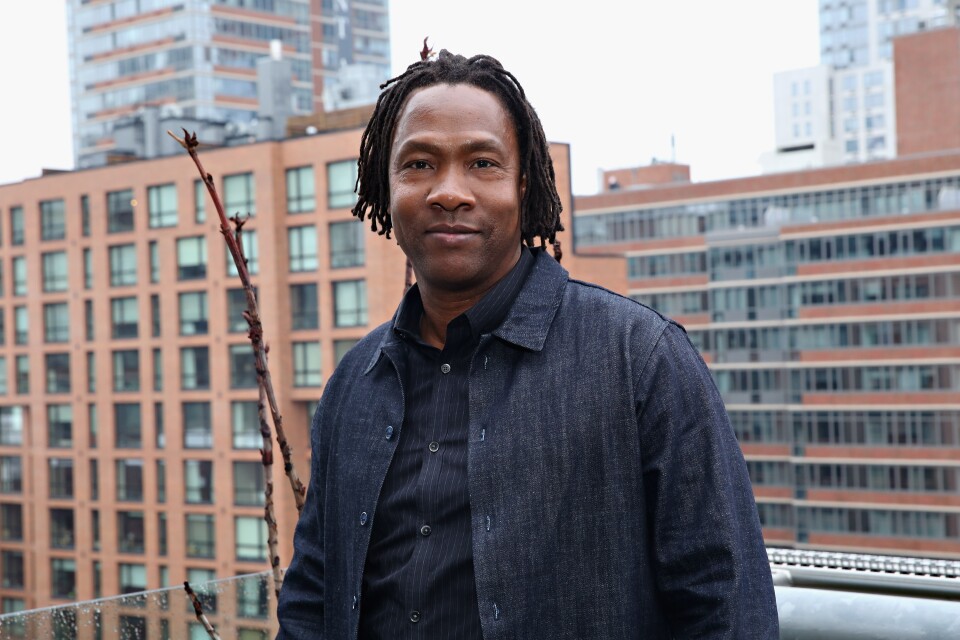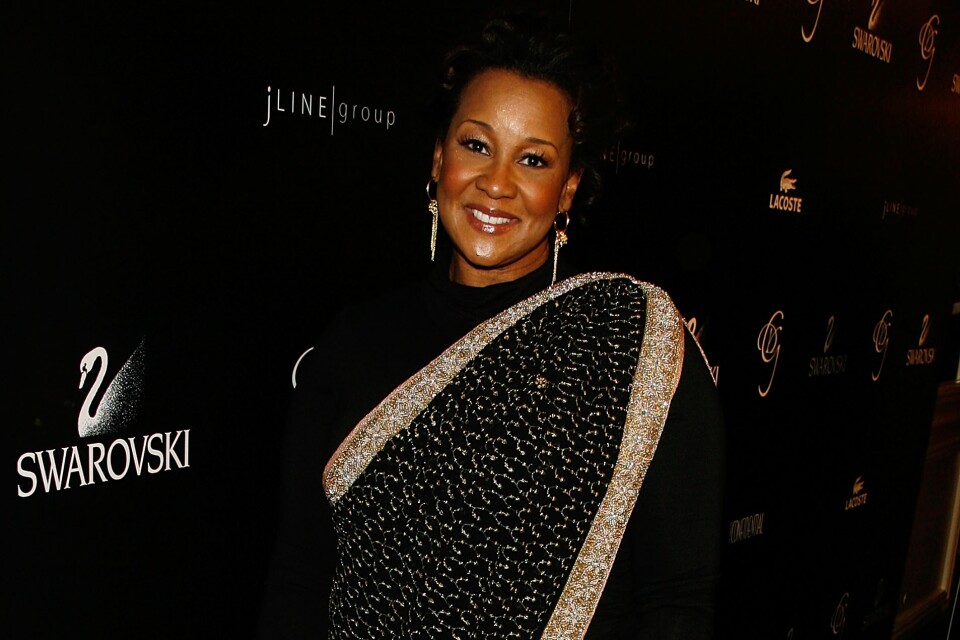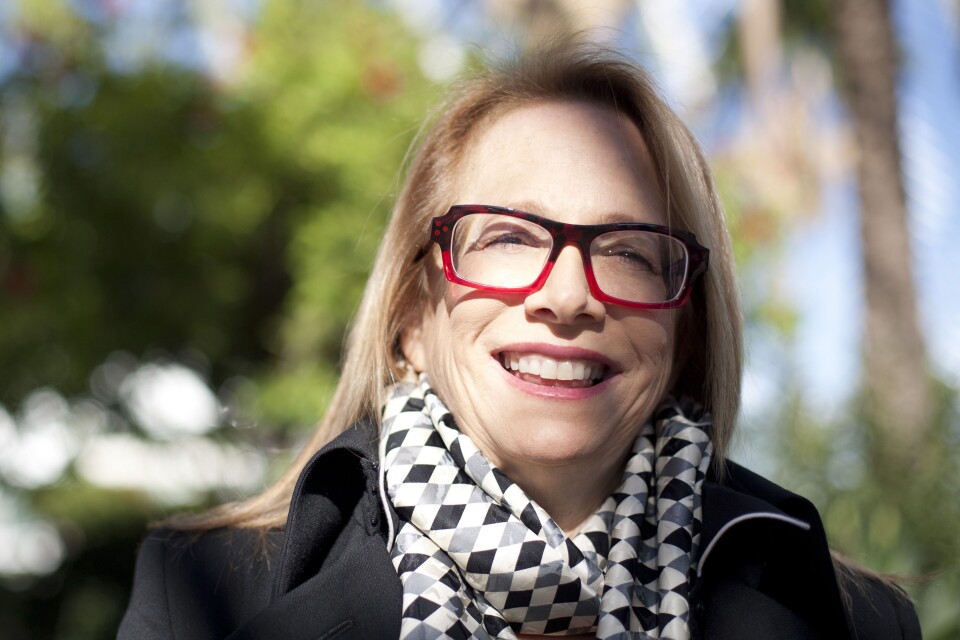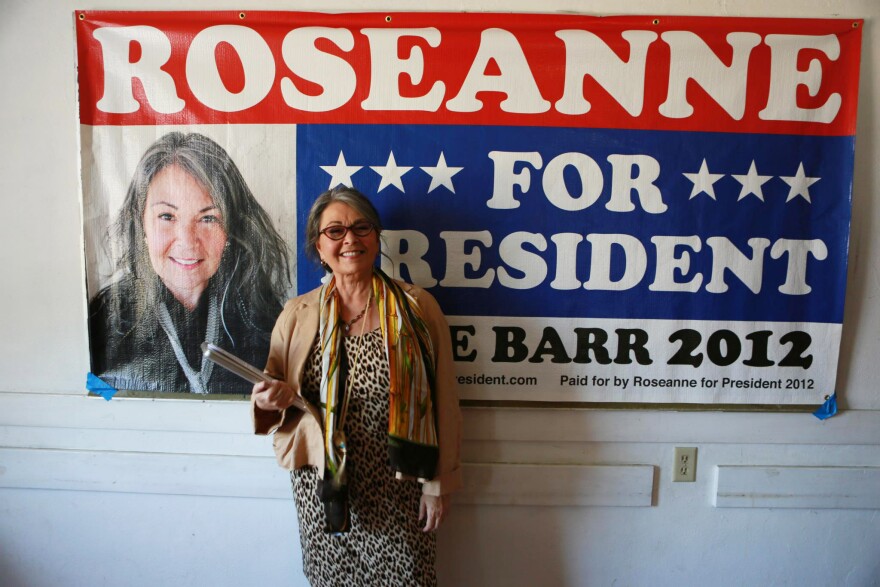Roseanne Barr ran for the U.S. presidency in 2012 and a lot of people didn’t take her seriously. She came in 6th place in the general election and now she’s the subject of a documentary about her bid for the White House called “Roseanne for President!”; Academy of Motion Picture Arts and Sciences members are voting for who will lead them on the Board of Governors into this new era. We hear from three people running for election
Academy board hopefuls want action: 'We can't wait for Hollywood to open doors'
Earlier this week, the Academy of Motion Picture Arts and Sciences invited nearly 700 people to become new members. It was the largest and most diverse group ever to be invited into the institution which the L.A. Times exposed in 2012 to be largely comprised of white men of a certain age.
Now, Academy members are voting for who will lead them into the future.
The Board of Governors is currently having it's first open election to fill open seats. The function of the board is to set the Academy’s agenda and help shape its policies going forward. Each of the 17 branches which includes Actors, Directors, Cinematographers, Music, Producers and more, are represented on the board.
And each branch is responsible for choosing who gets nominated for the Academy Awards in their particular category.
The Frame spoke with three Academy members running for seats on the Board of Governors about why they want to take a leadership position in the Academy at this time of change.
Roger Ross Williams, Director
Roger Ross Williams is a member of the Documentary branch at the Academy. He made Oscar history in 2010 when he became the first African American director to win an Academy Award. That was for the documentary short, “Music By Prudence." His most film is full length documentary "Life, Animated" which premiered at Sundance and is in theaters now.

Why are you running for a board seat?
The doc division is great because I think we're way ahead of the other branches of the Academy and we do have a diverse membership. But, you know, it's not enough. I think that the Academy does great work in education and we need to really push diversity by encouraging people from underserved communities to really want to become documentary filmmakers.
I think what you're really describing is the Academy kind of changing its disposition to be more proactive rather than reactive.
Exactly. We can't wait for Hollywood to open doors for us. We have to open doors for ourselves.
Even though the Academy invited a record number of new members who are minorities. The number of African Americans who are currently running for board seats this year is only four — you are one of those four. Does that fact alone reflect how much growth the Academy still has to do?
Absolutely, absolutely. We in the documentary branch just invited our first African American women to join the branch. Dawn Porter, Shola Lynch and Laurens Grant. Can you imagine that we just assumed there were African American women in the branch but there were not? This says a lot about where the Academy is, but also a lot about where we're going to go. This is, like I said, the beginning.
In January, you wrote in the Hollywood Reporter, "There are simply too many Academy members who were voted in during a less inclusive era and still remain a large voting bloc even though they haven't worked in the field for decades." How do you deal with that group of people who feel, if they are asked to leave, they are being disenfranchised?
Well, they don't have to leave the Academy. They're losing their voting rights. I think if you're not an active part of the community, if you're not working in the industry, then you shouldn't vote. It's that simple. They can be in the Academy and can enjoy the benefits of being an Academy member, but I think the voters need to be people who are active in the community because this is about your peers. This is about peers voting for the people in your branch and I think that's important.
Sharen K. Davis, Costume Designer
Sharen K. Davis is a member of the Costume Designers branch of the Academy. She joined in 2002. She was nominated for an Oscar for her work on "Ray" in 2004. Some of her other credits include "Django Unchained," the upcoming Antoine Fuqua movie "The Magnificent Seven," and the Denzel Washington film "Fences."

What was your response to the #OscarsSoWhite controversy?
When you sit down and look at the two hundred something films that were shot in a year and, as a costume designer, you have to pick five, I get overwhelmed. All my thoughts of color go out the window because I got into creative mode. We have our years and we don't have our years. We've had some good years where there have been a lot of people of color nominated.
You are running for a board seat in the costuming branch of the Academy. If you're elected to the board of governor, what would be your first order of business?
I'm running for governor because I feel I can be a positive advocate and ambassador in representing the Academy's recent step toward further inclusivity and helping people who don't know that they can actually do this position or think it's above them.
What are the most important things to you and what do you hope to do, if you are elected, to change, not only the costume designers branch, but the overall Academy?
I really think that the Academy should take necessary steps in recognizing talent and diversity. And it's not just African Americans but all people of color.
Laura Karpman, Composer
Laura Karpman is a member of the Music branch. She's a relatively new member of the Academy having joined last year. Her film credits include “Black Nativity” and the documentaries “States of Grace” and “The Galapagos Affair.” Karpman is also the President and co-founder of the Alliance For Women Film Composers.

What made you decide to run for a leadership position on the Academy’s board?
I really responded to the Academy's call for diversity. It's kind of a word I hate, but I understand the intention behind it. I fundamentally feel that the Academy is in a fantastic leadership role. It doesn't have to follow the trends in Hollywood, it can lead the trends in Hollywood. I wanted to be a part of that. So I'm running and hopefully will be able to affect some of those changes that well all know we need in this town.
In a statement made to The Hollywood Reporter about your candidacy's platform, you said, "Every minute of every day I am thrilled and honored to be able to practice my art. Although I have had great success, I've also experienced mind-blowing sexism." What do you mean by that?
(Laughs) Well, I've gotten fired from jobs because my music is not masculine enough. Things like that. Little comments. The little things that you hear every day that you brush over in an early career but then as you get older and you've heard them five million times you say, Okay, maybe we need to change. But I think more than that I see that there's a real inequity in the way that people of color and women advance. There seems to be less facility in that and I think that's something we need to look at. The other thing we talk about a lot that strikes me as so strange is there's an invisibility of a community that already exists. Our alliance — we have over 125 members and that's just a fraction of the women composers who exist and are working. I don't know why it is that people are constantly saying there aren't any women composers because there are. Having said that, I'm not naive. I know that women compose 2% of the top 250 box office films. As soon as we become more visible, it's my belief that we can start doing those bigger projects, which we're not doing right now.
92 percent of your branch, the music branch, is white men.
Look, we have a big ugly problem but I think we're starting to fix it. I gotta tell you, if you asked me that three years ago, I would have rolled my eyes, shrugged my shoulders and I would have shrunk into my chair in depression and said, this is what it is. But, I do think there's a movement. Now, whether that movement starts to reflect more work in the top class of Hollywood projects, I don't know that. I can't predict that. But what I can tell you is this year, we're going to have a really diverse class in the music branch. I can tell you, as long as I am there and as long as anybody will listen to me, either as a governor or just a member, any way that we are going to continue to push for these things. That excites me. I think there's hope.
Follow Williams and Karpman on Twitter: @RogerRossWill and @Laura_Karpman
Roseanne Barr says her 2012 bid for president 'killed' her TV career
When comedian Roseanne Barr ran for President of the United States in 2012, a lot of people didn’t take her seriously. But she was actually pretty serious about the issues.
Running on a socialist platform that included single payer health care, abortion rights, and marijuana legalization she became the candidate for the Peace and Freedom party after losing a bid to represent the Green Party. All of this is documented in the new film “Roseanne for President!” At one point in the film she gives a speech in which she said:
There's another kind of comedy. There's the kind that speaks truth to power and not to pacify the victims of power. That is the difference between a serious comedian and a clown.
Barr's hit sitcom from the '90's "Roseanne" tackled socio-political and economic issues that pushed the envelope for television at the time. Unemployment, poverty, abortion and a much-debated lesbian kiss were among the topics that set her show apart. In the documentary she talks about a pilot for a new show she was developing for a year that didn't get picked up. When asked about this, Barr told The Frame that her politics "killed" her TV career.
Below find interview highlights from her conversation with The Frame's John Horn or click on the play button to hear the interview...bleeps and all.
Trailer: Roseanne for President!
Interview Highlights
Do you think because of who you are and what you've done, people were reluctant to take you seriously as a presidential candidate?
That's exactly what happened, but if they had any brains, which they don't, they would have seen that I could be very useful to a third party and I think I have been. This year is the first year in American election history that almost 16 percent of the public is going to vote for a third party. I think I was ahead of a trend.
In your campaign, you talked a lot about politicians and parties being in bed with the big banks and the need for universal single payer healthcare. All of that sounds reminiscent of presidential candidate Bernie Sanders. Do you think that his campaign picked up where yours ended?
Yeah, I think he stole my s***, but I offered it freely and I hoped somebody would for God's sake and I'm very honored that he did and sometimes word for word. And I also think that Trump stole a lot of my s***, too, because I also considered this government a failed senate and they are not representing the people who put them there.
In what ways did being in entertainment prepare you for your presidential run?
Like I said in the debates, I and I alone convinced a gaggle of very conservative television executives that having gay people on in the family hour was indeed a good idea. And I felt that because I did that, I could run for president and not only run for president, but be president and make America great again, along with the rest of the damn world with it.
How effective do you think you were in using your sitcom to put issues that you cared about into the public conversation?
Once, I think it was a New York Times reporter that asked me, "Do you think there would be a Hillary Clinton without a Roseanne Conner? and I said, "No. I don't." The writers on the show and I made it palatable to middle class America, to working class America, and even to the halls of those people in power, that women were smart and they were very shocked to hear that.
There was a lot of controversy over an episode of "Roseanne" which features two women kissing, the episode eventually did run. How were you able to convince ABC to air it?
Just bottom-line, common-sense talking about demographics, which is something that I used to study a lot, so I approached them on that. It was a very professional, uptown, Harvard-ish way of talking. And I do wanna say for the gay thing, I do have a gay brother and sister, so that was something that I knew was very important at that time.
By demographics, you mean that you felt that there was an audience out there that would not only identify, but also not be offended by a lesbian kiss?
Yeah, cause I always thought that my whole life as a little girl watching television and going, "Why is it only 'Father Knows Best' and all the women have pretty dresses and pearls on? None of the women in my family looked like that. They all weighed 300 pounds and worked harder than men physically, so why isn't that ever on there because everyone that I see and grew up with that was the reality." It's just class bulls*** and I wanted to kick that in and I did.
It seems that television has come a long way since your show was on the air on a variety of issues including LGBT issues. Are you happy, excited, or do you feel TV still has a long way to go?
There's a lot of great stuff to watch on television and Netflix and a lot of great content out there and I'll tell you one thing: There's nothing about class in America. I think that is such an uncomfortable conversation in our country right now and we probably won't see it because it's just too real. And if I did come back that's all I would talk about and I would be nude.
Do you foresee a "Roseanne 2.0" coming up?
I don't know. I mean I'm tired. I could never work that hard again. I'm sixty-four now. I got six grandkids. I like teaching them to swear and stuff more than anything else.




